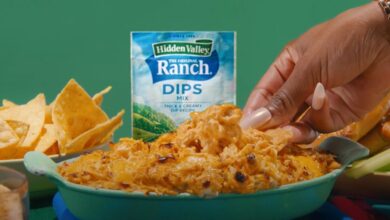Whiskey Nutrition Facts
Whiskey is not only a beloved spirit enjoyed globally for its complex flavors but also a subject of interest due to its nutritional composition. Understanding the nutritional facts about whiskey can help you make informed decisions about your dietary intake and enjoy this beverage responsibly.

Calorie Content
A standard serving of whiskey, which is 1.5 fluid ounces (about 44 ml), typically contains approximately 97 calories. This relatively low calorie count makes whiskey a more appealing choice compared to other alcoholic beverages like beer or wine.
Carbs and Fat
Whiskey stands out among many alcoholic beverages as it is completely free of carbohydrates and fats. This makes it an ideal choice for individuals who are monitoring their carb or fat intake for dietary reasons.
Protein and Fiber
Whiskey does not provide any protein or fiber. Its nutritional content is primarily derived from its alcohol content, with only trace amounts of other nutrients present.
Alcohol Content
Whiskey’s alcohol content varies, usually ranging from 40% to 50% alcohol by volume (ABV). Cask strength whiskey can have an even higher ABV, typically between 55% and 60%. The high alcohol content significantly contributes to its calorie count but does not provide nutritional value.
Vitamins and Minerals
Whiskey contains negligible amounts of vitamins and minerals. Unlike foods, it does not significantly contribute to your daily intake of essential nutrients such as vitamins or calcium. However, it is rich in ellagic acid, a potent antioxidant.
Sodium
Whiskey is a low-sodium beverage, with a standard serving containing less than 1 mg of sodium. This makes it a suitable option for those looking to minimize their sodium intake.
Health Benefits
Moderate consumption of whiskey has been linked to certain health benefits, including:
- Rich in antioxidants: Whiskey contains ellagic acid, which helps fight oxidative stress in the body.
- May reduce uric acid levels: Some studies suggest that whiskey can help lower serum urate levels, potentially reducing the risk of gout.
- Potential cognitive benefits: Limited alcohol intake, including whiskey, may be associated with a reduced risk of dementia in older adults.
Risks
Despite these potential benefits, it is crucial to consume whiskey in moderation. Excessive alcohol consumption can lead to a range of short-term and long-term health risks, including liver disease, cardiovascular problems, and addiction.
Serving Size and Moderation
A standard serving size for whiskey is 1.5 fluid ounces (44 ml). The Dietary Guidelines for Americans recommend that if alcohol is consumed, it should be in moderation. This translates to up to one drink per day for women and up to two drinks per day for men.

Frequently Asked Questions
What is the calorie content of whiskey?
A standard 1.5 fluid ounce serving of whiskey contains about 97 calories.
Does whiskey contain carbs or fat?
No, whiskey is free of both carbohydrates and fats.
Are there any vitamins or minerals in whiskey?
Whiskey contains negligible amounts of vitamins and minerals but is rich in ellagic acid, an antioxidant.
How much alcohol is in whiskey?
Whiskey typically has an alcohol content ranging from 40% to 50% ABV, with cask strength varieties containing even higher levels.
What are the health benefits of whiskey?
Moderate consumption of whiskey may offer benefits such as antioxidant properties, reduced uric acid levels, and potential cognitive benefits.
What are the risks associated with whiskey consumption?
Excessive whiskey consumption can lead to health risks like liver disease, cardiovascular issues, and addiction. It is essential to consume it in moderation.
By understanding these nutritional facts and health implications, you can enjoy whiskey responsibly while making informed choices about your diet.
Read also:
Dough Ball Whiskey Nutrition Facts





